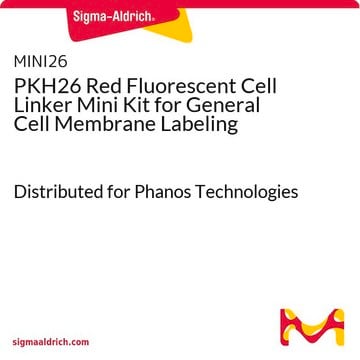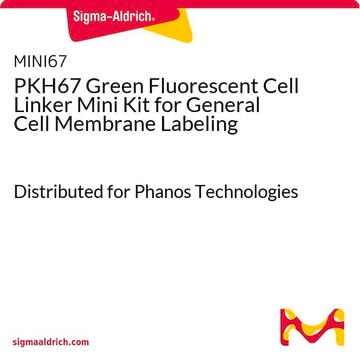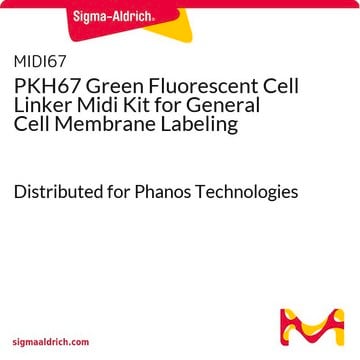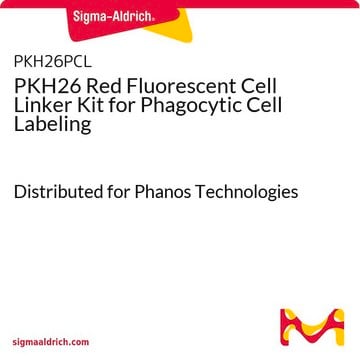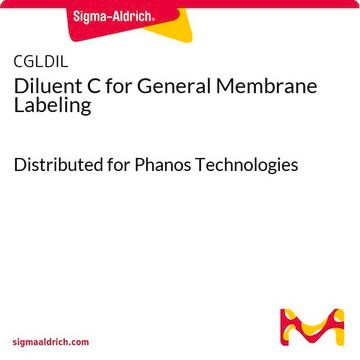PKH26GL
PKH26 Red Fluorescent Cell Linker Kit for General Cell Membrane Labeling
Distributed for Phanos Technologies
Sinónimos:
Red PKH membrane dye
About This Item
Productos recomendados
packaging
pkg of 1 kit
Quality Level
manufacturer/tradename
Distributed for Phanos Technologies
storage condition
protect from light
fluorescence
λex 551 nm; λem 567 nm (PKH26 dye)
detection method
fluorometric
shipped in
ambient
storage temp.
room temp
General description
Application
Linkage
Legal Information
Solo componentes del kit
- Diluent C 6 x 10
- PKH26 Cell Linker in ethanol .5 mL
Related product
signalword
Danger
hcodes
Hazard Classifications
Eye Irrit. 2 - Flam. Liq. 2
Storage Class
3 - Flammable liquids
wgk_germany
WGK 1
flash_point_f
57.2 °F - closed cup
flash_point_c
14.0 °C - closed cup
Certificados de análisis (COA)
Busque Certificados de análisis (COA) introduciendo el número de lote del producto. Los números de lote se encuentran en la etiqueta del producto después de las palabras «Lot» o «Batch»
¿Ya tiene este producto?
Encuentre la documentación para los productos que ha comprado recientemente en la Biblioteca de documentos.
Los clientes también vieron
Artículos
PKH dyes are easy to use and achieve stable, uniform, and reproducible fluorescent labeling of live cells. PKH dyes are non-toxic membrane stains which produce high signal to noise ratio.
PKH dyes are easy to use and achieve stable, uniform, and reproducible fluorescent labeling of live cells. PKH dyes are non-toxic membrane stains which produce high signal to noise ratio.
PKH dyes are easy to use and achieve stable, uniform, and reproducible fluorescent labeling of live cells. PKH dyes are non-toxic membrane stains which produce high signal to noise ratio.
PKH dyes are easy to use and achieve stable, uniform, and reproducible fluorescent labeling of live cells. PKH dyes are non-toxic membrane stains which produce high signal to noise ratio.
Nuestro equipo de científicos tiene experiencia en todas las áreas de investigación: Ciencias de la vida, Ciencia de los materiales, Síntesis química, Cromatografía, Analítica y muchas otras.
Póngase en contacto con el Servicio técnico